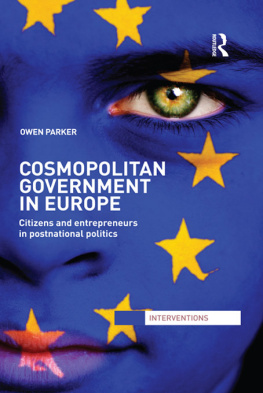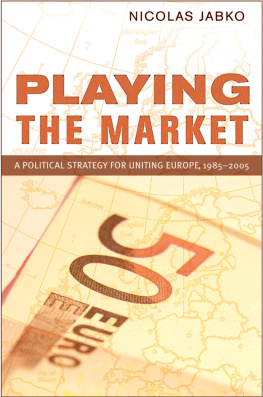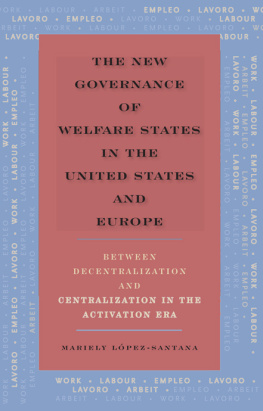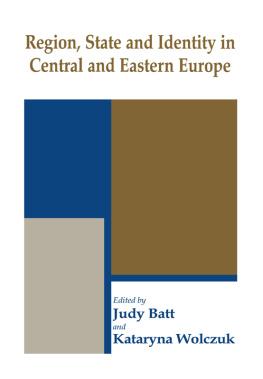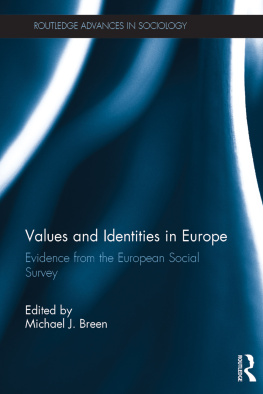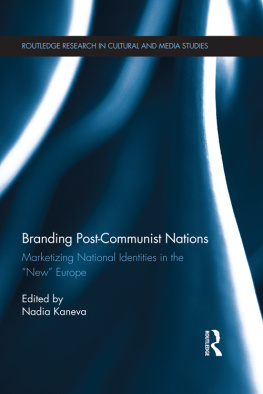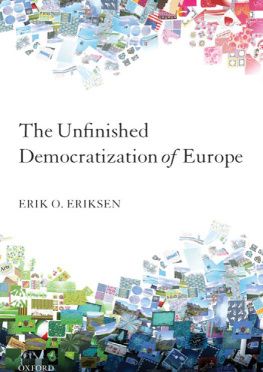Cosmopolitan Government in Europe
Owen Parker has developed an important, timely and original argument about varieties of ethical reasoning in the area of cosmopolitanism and has shown how the EU project consists of a series of contests around rival cosmopolitanisms. This superb book makes very significant contributions to both international theory and European integration studies.
Professor Ben Rosamond, EURECO Professor,
Department of Political Science, University of Copenhagen
Interrogating cosmopolitan government in Europe, Owen Parker hits the sweet spot between sophisticated theory and rich empirical analysis. A serious contribution to EU analysis, his Foucauldian take on the relationship between the market and the social in Europe deserves a wide readership among scholars and students of international theory and IPE.
Daniel Wincott, Blackwell Professor of Law and Society,
Cardiff Law School
The invocation of the market has been omnipresent in media discussions of crisis Europe. On the one hand, the market is presented as that to which EU member states must collectively respond. It is the very purpose of a postnational government and that which dictates individual and collective identities. The expansion of market is that which guarantees and constitutes peace in Europe. On the other hand, the market is that which government must seek to tame. It is the servant of government and ought not be permitted to undermine collective identities and solidarities associated with the juridical imaginary of social contract and sovereign nation-state. It is, from this perspective, the expansion of the social institutions of nation-state into the postnational arena that will constitute a lasting peace in Europe.
Cosmopolitan Government in Europe uses a Foucauldian lens to consider the ethics of the scholarly and institutional discourses associated with these apparently divergent market and legal cosmopolitan visions of Europe. It reflects on attempts to reconcile or move beyond these discourses, particularly through the invocation of more pluralist modes of governance, but claims that such moves have been largely unsuccessful in both practice and theory. It argues that the very ambiguity in the relationship between the ideal subjects that these market and legal visions promote respectively, postnational entrepreneur and citizen is that which permits a space for resistance and politics. Thus, the book argues for a pragmatic politics which is cognisant of the violent potential inherent in any cosmopolitan attempt to govern Europe, while recognising the contemporary dangers associated with the dominance of a market Europe.
This work is an important and timely intervention in contemporary debates about democracy, legitimacy and governance in the EU and will be of great interest to students and scholars of international political theory, international political economy and European politics.
Owen Parker is a Lecturer in European politics at the University of Sheffield. His work addresses the governance of political economy, security and identity in the EU and has been published in such outlets as Journal of European Public Policy and Journal of Common Market Studies .
Interventions
Edited by: Jenny Edkins, Aberystwyth University and Nick Vaughan-Williams, University of Warwick
As Michel Foucault has famously stated, knowledge is not made for understanding; it is made for cutting. In this spirit The EdkinsVaughan-Williams Interventions series solicits cutting edge, critical works that challenge mainstream understandings in international relations. It is the best place to contribute post disciplinary works that think rather than merely recognize and affirm the world recycled in IRs traditional geopolitical imaginary.
Michael J. Shapiro, University of Hawaii at Mnoa, USA
The series aims to advance understanding of the key areas in which scholars working within broad critical post-structural and post-colonial traditions have chosen to make their interventions, and to present innovative analyses of important topics.
Titles in the series engage with critical thinkers in philosophy, sociology, politics and other disciplines and provide situated historical, empirical and textual studies in international politics.
Critical Theorists and International Relations
Edited by Jenny Edkins and Nick Vaughan-Williams
Ethics as Foreign Policy: Britain, the EU and the other
Dan Bulley
Universality, Ethics and International Relations: A grammatical reading
Vronique Pin-Fat
The Time of the City: Politics, philosophy, and genre
Michael J. Shapiro
Governing Sustainable Development: Partnership, protest and power at the world summit
Carl Death
Insuring Security: Biopolitics, security and risk
Luis Lobo-Guerrero
Foucault and International Relations: New critical engagements
Edited by Nicholas J. Kiersey and Doug Stokes
International Relations and Non-Western Thought: Imperialism, colonialism and investigations of global modernity
Edited by Robbie Shilliam
Autobiographical International Relations: I, IR
Edited by Naeem Inayatullah
War and Rape: Law, memory and justice
Nicola Henry
Madness in International Relations: Psychology, security and the global governance of mental health
Alison Howell
Spatiality, Sovereignty and Carl Schmitt: Geographies of the nomos
Edited by Stephen Legg
Politics of Urbanism: Seeing like a city
Warren Magnusson
Beyond Biopolitics: Theory, violence and horror in world politics
Franois Debrix and Alexander D. Barder
The Politics of Speed: Capitalism, the state and war in an accelerating world
Simon Glezos
Politics and the Art of Commemoration: Memorials to struggle in Latin America and Spain
Katherine Hite
Indian Foreign Policy: The politics of postcolonial identity
Priya Chacko
Politics of the Event: Time, movement, becoming
Tom Lundborg
Theorising Post-Conflict Reconciliation: Agonism, restitution and repair
Edited by Alexander Keller Hirsch
Europes Encounter with Islam: The Secular and the Postsecular
Luca Mavelli
Re-Thinking International Relations Theory via Deconstruction
Badredine Arfi
The New Violent Cartography: Geo-analysis after the aesthetic turn
Edited by Sam Okoth Opondo & Michael J. Shapiro
Insuring War: Sovereignty, security and risk
Luis Lobo-Guerrero
International Relations, Meaning and Mimesis
Necati Polat
The Postcolonial Subject: Claiming politics/governing others in late modernity
Vivienne Jabri
Foucault and the Politics of Hearing
Lauri Siisiinen
Volunteer Tourism in the Global South: Giving back in neoliberal times
Wanda Vrasti
Cosmopolitan Government in Europe: Citizens and entrepreneurs in postnational politics
Owen Parker
Studies in the Trans-Disciplinary Method: After the aesthetic turn
Michael J. Shapiro

